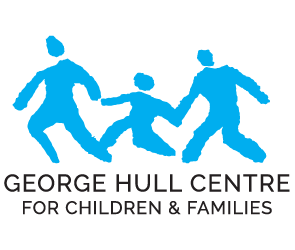
15 May Creating a Safe Space
Creating a Safe Space for a Child's Story of Trauma
Grade eight is a difficult enough year without the added assignment of a victim impact statement. Hard enough without waking up at night in tears from nightmares of hands on you again, or the sudden sweat and racing heart at the sight of his company van driving through the neighbourhood. The impacts of her sexual abuse went far beyond terrifying dreams and panic for Julia. Math had always been a challenge, but last year, with focus that came in and out like her father’s sobriety, and a teacher whose every word she heard as a shout of disappointment, she was failing. Desperate for connection with friends, she overlooked early signals of a classmate’s selfishness until it was too late, after the subtle put-downs turned to cruel exclusion. As the school year went on, faint cuts up and down her arm started to leak more blood, leaving trails all the way to city Emergency departments.
Each child who has been a victim of abuse has their own unique story to share – unique fears and challenges navigating a life in Grade 8 while haunted by the betrayals they’ve experienced at the hands of those who were supposed to protect and comfort them. What is common is how difficult these stories are to tell, speaking through the confusion and shame, anger and fear of further damage being done, and the time and care required to create a plan toward recovery.
The Institute of Trauma and Attachment, in its efforts to build comprehensive and evidence-based interventions for children and their families affected by trauma, aims to create a safe space for these stories to be told and formulated, and expand a regular practice of trauma-focused treatments rooted in quality evidence.
So was the case for Julia. A shy, timid kid, she walked slowly into the interview room for a trauma focused assessment. This was the winter of 2023, with Grade 8 rushing past the halfway point and feeling doomed for a failing grade. She sat on the couch across from a team made up of one of our child psychiatrists and a senior clinician. Together they steered Julia through the process of sharing her story of abuse with compassion, empathy, and support along the way. There was also the promise of meaningful treatment plan crafted once the relevant information had been collected. Such an assessment focuses on experiences of trauma and challenges related to their impact, but just as important, it also explores the strengths of a child, family and extended support system which might serve the healing journey. Over the past year the Institute has worked in partnership with clinical staff to expand The George Hull Centre’s capacity to provide such assessment to families in high need. We have developed a mentoring system where clinicians expert in the field of trauma care partner with less experienced clinicians to learn how to conduct these specialized assessments. Assessment training delivered by our cherished partner Geraldine Crisci has provided a foundation of knowledge to members of the Community Clinic setting out to work in the mentorship program.
Sharing her painful story again through this assessment has was a challenge for Julia, as evident by moments of fidgeting, staring off, as well as instances when she chose not to provide an answer. What she was able to share we held in one place, as opposed to the offices of therapists who’d been tried before, various emergency room beds, and the charts of nurses and doctors who didn’t have enough time to properly process such a mess of symptoms – symptoms that rarely hold together in organized constellation, but rather seem to come from different star systems altogether.
Through trauma assessment we brought meaning to Julia’s moods and thoughts and behaviours, connected the dreams and startle response and conflict with friends and choices for when to show up to math class or not, to her experience of sexual abuse. And with that shared understanding we moved toward treatment.
Eye Movement Desensitization and Reprocessing, or EMDR for short, is an evidence-based treatment for victims of various kinds of trauma. In part through the strong relationships the Institute has built with clinical leaders through Ontario, and the interest inspired within our own mental health professionals at The George Hull Centre, in 2023 our agency hosted a course in basic EMDR therapy training put on by Barbara Horne and the Niagara Stress and Trauma Clinic. A group of over 20 mental health professionals attended the training at our site, including eight learners from the clinical staff at George Hull. With these hours of intense didactic teaching and practicing of skills, supported by ongoing case consultation over the length of the course, staff were encouraged to begin the work with clients who were suitable.
Julia became one such adolescent to test out the effects of EMDR. With the efforts by the Institute to elevate our Centre’s trauma care, instead of treatment for non-specific posttraumatic symptoms better suited to more straight-forward anxiety and mood disorders, we are able to offer trauma-specific interventions.
Julia is four months into a course of EMDR therapy, and during that time she has started at a new school for Grade 9, another year full of its own inherent challenges. She has connected with a group of friends, carrying the belief that she deserves kindness and support from her peers. She made the soccer team. And though math still doesn’t come easily, she is able to focus in class and is testing out a new confidence to approach teachers for extra help when she needs it. As significant as what is present for Julia a year later, consider what is not there for her anymore: no recent visits to emergency, no self-harming, no flashbacks. Julia can’t remember the last time she had a nightmare.
Author

Taylor Armstrong, MD, FRCPC
This story was written by Taylor Armstrong, MD, FRCPC, a Child and Adolescent Psychiatrist who works as Psychiatric Advisor for Trauma Services for the Institute as well as at The George Hull Centre in their Community Clinic.
